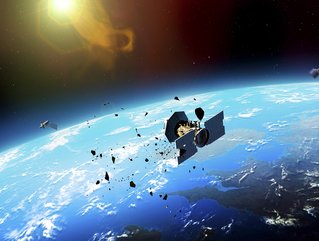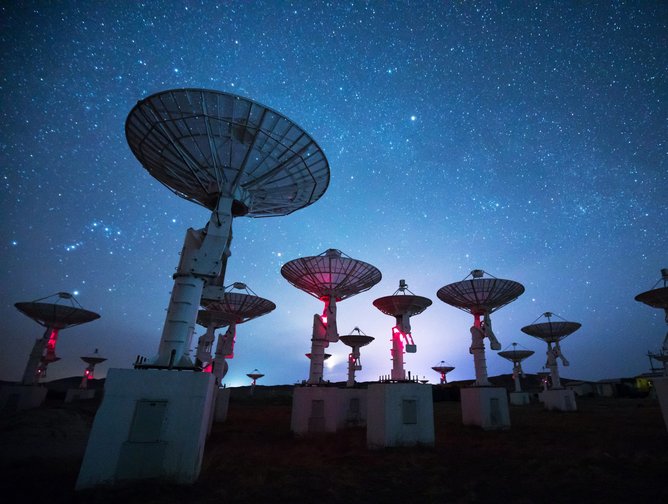Sustainability is a universal problem, on earth and in space

The universe is expanding, and thanks to space exploration so is our understanding of it. But with more contact with outer space comes the harmful repercussions of launching tonnes of rockets, spaceships, and satellites into the cosmos. As the so-called space renaissance continues, we, as space-exploring humans, have a responsibility to make space a safe and sustainable environment.
McKinsey & Company recently partnered with the World Economic Forum to outline five actions for leaders to maximise the potential of an accessible, self-sustaining space economy. The actions are as follows:
- Create and implement effective space governance
- Invest resources and effort in enabling technologies and capabilities
- Incentivise collaboration among nations, sectors and industries
- Foster a self-sustaining industrial base
- Leverage the space sector more to advance sustainability and security
From global connectivity to weather forecasting to monitoring climate change, our daily lives are increasingly being powered from services (i.e. 7,000 satellites) in outer space. Therefore, the drive to take our sustainability initiatives beyond our earthly presence, and out into the universe, is of critical importance to life on earth as well as our future prospects out in space.
The development of space technology is both a help and a hindrance for sustainability
Space junk, orbital crowding and space security are all issues that stem from our growing presence in space. According to Airbus, there are over 7,600 tonnes of 40,000 objects drifting around in Low Earth Orbit (LEO). This not only makes space communication more difficult and increases the likelihood of space traffic collisions, but it also poses a threat to people and property on Earth – as shown by the recent case of space debris crash-landing into an Australian sheep farm.
Multinational aerospace corporation Airbus is leading the way in the development of in-orbit technologies designed to remove space junk from the earth’s orbit. The company’s RemoveDEBRIS project is currently ongoing, with an experimental satellite currently in-orbit performing active debris removal. The Surrey Space Centre in the UK are leading the mission.
Alongside companies like SpaceX and Lockheed Martin, Airbus is also a participant in the Space Sustainability Rating (SSR) consortium, which is led by the World Economic Forum with the aim of increasing transparency in organisations’ responsible behaviour in space.
The World Economic Forum fears that the current pace of growth in space exploration is completely unsustainable. The SSR is therefore aimed at national governments and companies like Elon Musk’s Starlink, to make them fully accountable in their mega-constellations projects that are set to leave more space junk in LEO. The SSR launched earlier this year and is now undergoing development to find the best way of enhancing the efficiency of the rating system.
Making outer space a more sustainable place for future exploration
The space era began in 1957 with the launch of Sputnik 1. Since then, the international growth of space travel has accelerated as a result of technological progress and commercial funding. As more countries and businesses bid to get involved, ensuring space sustainability is vitally important to maintain the trajectory of positive progress in space exploration.
The Secure World Foundation defines space sustainability as: “Ensuring that all humanity can continue to use outer space for peaceful purposes and socioeconomic benefit now and in the long term. This will require international cooperation, discussion, and agreements designed to ensure that outer space is safe, secure and peaceful.”
This suggests that, if space technology is used wisely, it can also enhance life on earth. Space technology helps us measure global carbon emissions, allows farmers to improve their crop yields, and facilitates more efficient aviation and container ship transportation. The supply chain itself relies on satellite communications.

“Satellite technology and space exploration offer a potential new frontier of opportunities to assess and address climate change and sustainability on a global scale. In the coming years, these technologies could enable us to have a have a more powerful global view of climate data and environmental science. Those insights, in turn, can help enable a deeper integration of sustainability considerations into investment decisions,” said Audrey Choi, Chief Sustainability Officer and Chief Marketing Officer at Morgan Stanley.
Therefore, as we seek to improve our agricultural, transportation and manufacturing operations on earth, we need to make sure that space agencies and governments have strict regulatory policies in place to minimise humanity’s impact on space.
Major investments in the space tech and travel industries are crucial for expanding our knowledge of the universe; but that shouldn’t come at the detriment of our relationship with it. With this in mind, complete space sustainability relies on the development of global policy measures, such as space governance, to implement effective regulations world-wide.






